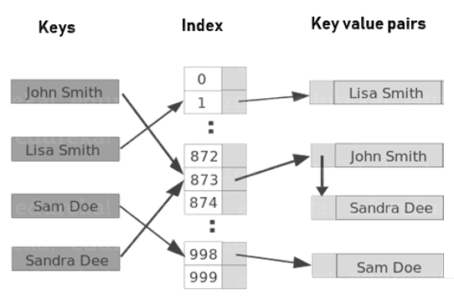Why Are Strings Immutable in Java? In-depth Evaluation for Designers
Wiki Article
What Is Unalterable Strings and Exactly How It Works
In the realm of programming, understanding the idea of immutable strings is critical for producing safe and secure and robust applications. Unalterable strings refer to strings that can not be altered after they are developed, making certain data stability and predictability within the code.The Fundamentals of Immutable Strings
Immutable strings, as a basic principle in programming, are personality series that can not be changed when they are created. This indicates that as soon as a string is assigned a worth, that value can not be modified. In languages like Python and Java, strings are immutable things, bring about different implications in terms of memory management and data integrity.Among the essential advantages of immutable strings is that they supply a feeling of protection in data adjustment. Given that the content of an immutable string can not be customized, it ensures that the original information stays undamaged, minimizing the danger of unexpected changes throughout program implementation (Why are strings immutable in Java?). This home likewise streamlines debugging processes, as programmers can trust that once a string is specified, its worth will certainly not be unintentionally modified
When a new string is developed based on an existing one, instead than customizing the original string, the new value is stored independently. Generally, recognizing the basics of immutable strings is crucial for mastering shows ideas and enhancing code efficiency.
Benefits of Unalterable Strings
Structure upon the protection and performance advantages of unalterable strings, their benefits prolong to enhancing code integrity and streamlining simultaneous shows tasks. By being immutable, strings can not be changed after development, which removes the threat of unintended modifications in the data they store. This integral immutability makes sure that once a string is produced, its worth stays consistent throughout the program's implementation, minimizing the chances of pests triggered by unexpected modifications.Additionally, unalterable strings add to code dependability by making it easier to reason concerning the state of a program. Considering that strings can not be altered, designers can trust that a string will constantly hold the exact same worth, simplifying debugging and upkeep efforts. This predictability brings about much more stable and dependable codebases.

Implementation in Shows Languages
Within various programming languages, the unification of unalterable strings is a basic aspect that impacts how data is handled and manipulated within code frameworks. The application of immutable strings differs throughout various programming languages, with each language supplying its very own systems to sustain this principle.

In comparison, languages like C and C++ do not have built-in assistance for unalterable strings. Developers in these languages should manually apply immutability by imposing guidelines within their code to avoid direct alterations to string things.
Ideal Practices for Functioning With Unalterable Strings
When managing unalterable strings in programming languages like Java and Python, adhering to ideal practices makes certain protected and effective data control. One of the crucial best methods is to utilize StringBuilder or StringBuffer as opposed to straight adjusting strings, particularly when dealing with extensive concatenation procedures. These classes provide mutable choices for string adjustment, assisting to stay clear of unneeded memory allocations and boosting efficiency.In addition, when working with sensitive information such as passwords or API secrets, it is important to stay clear of keeping them as plain message in unalterable strings. Making use of secure storage space devices like char varieties or specialized libraries for dealing with delicate info assists mitigate security threats connected with immutable strings.
Real-world Applications and Examples
Checking out functional applications of immutable strings in different industries exposes their significant impact on data integrity and system integrity. In the health care field, immutable strings play a crucial function in making sure the protection and privacy of person information. By avoiding unauthorized adjustments to delicate info such as clinical documents and prescriptions, immutable strings help maintain conformity with strict privacy regulations like HIPAA.Economic organizations also take advantage of the immutable nature of strings to boost the protection of customer information and deal documents. Immutable strings help Get More Information stop fraud and unapproved changes to monetary details, giving a durable protection against cyber risks and guaranteeing the trust fund and self-confidence of customers.

Final Thought
Ideal methods for working with immutable strings consist of staying clear of direct modifications and utilizing methods that return brand-new string objects. Real-world applications of unalterable strings include data file encryption, caching, and string manipulation tasks.Unalterable strings refer to strings that can not be altered after they are created, guaranteeing data honesty and predictability within the code. When a new string is created based on an existing one, instead than changing the original string, the new worth is stored independently.In languages like Java and Python, strings are immutable by default, meaning that once a string object is developed, its value can not be try here transformed - Why are strings immutable in Java?. Ideal practices for functioning with unalterable strings include avoiding direct alterations and using approaches that return brand-new string objects. Real-world applications of immutable strings consist of information encryption, caching, and string manipulation tasks
Report this wiki page